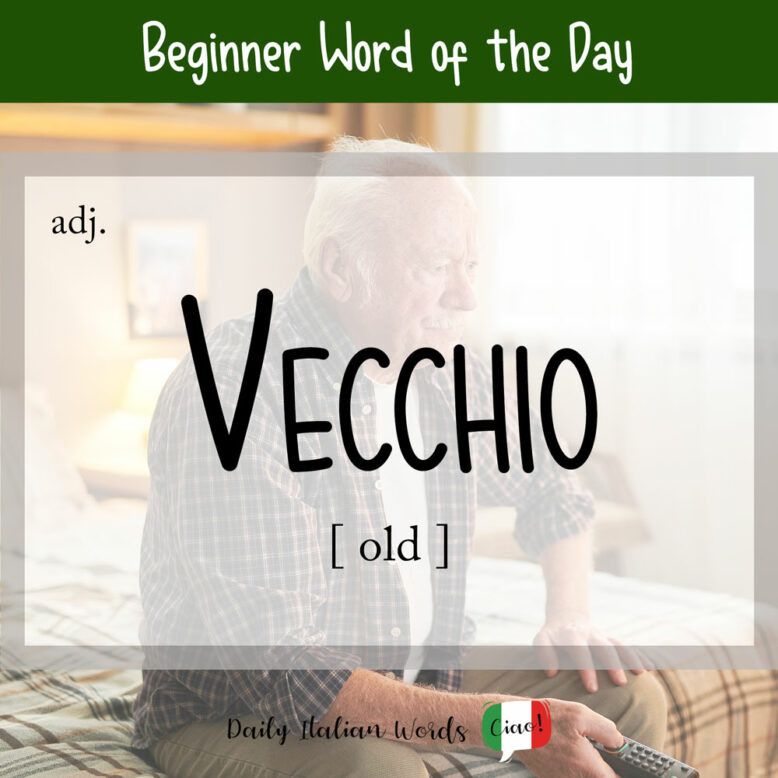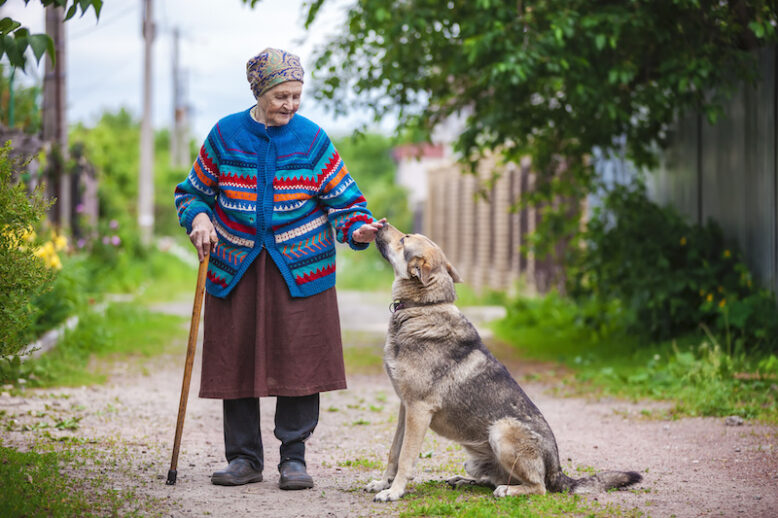Do you suffer from creaky knees or find yourself struggling not to fall asleep on the couch at two in the afternoon? If so, you may be becoming vecchio, which is the word for old in Italian!

Because vecchio is an adjective, the ending changes according to the gender and number of the subject it describes:
- vecchio (masculine, singular)
- vecchia (feminine, singular)
- vecchi (masculine, plural)
- vecchie (feminine, plural)
Voglio sostituire questo vecchio tavolo con uno nuovo.
I want to replace this old table with a new one.
La vecchiaia is how you would say old age in Italian, whereas vecchietto/a (the diminutive form of vecchio) is the word for old person.
Tutti i vecchietti dicono che la vecchiaia è una brutta cosa!
All old people say that old age is a terrible thing!

The word vecchio also forms the basis of the verb invecchiare meaning to get old or to age.
Although the word vecchio is perfectly acceptable when talking about objects, a more polite alternative when referring to people is the adjective anziano which translates as elderly or senior. If you call an old person vecchio, it can sound impolite (unless you know him/her well and say it as a joke).
Ho offerto il mio posto sul treno alla signora anziana.
I offered my seat on the train to the elderly lady.
Some other unoffensive ways of saying someone is old include:
- Non è più un ragazzino / una ragazzina. = He/She is no longer a boy/girl.
- È in là con gli anni. = He/She is getting up there.
- Non è più giovane come una volta. = He/She isn’t as young as he/she once was.
Speaking colloquially, a son might call his father il mio vecchio in the same way English people say my old man.
As in English, you can use vecchio to refer to a friend that you’ve known for years (un vecchio amico). The phrase essere vecchio del mestiere (lit: to be old in the profession) means to have a lot of experience. If you say vecchia volpe (old fox) to someone, you’re implying that he has a lot of skills and knowledge that he has acquired over the years.
Idioms featuring the word ‘vecchio’
Essere vecchio come il cucco
Literal translation: to be as old as a cuckoo
English meaning: to be very old
Essere più vecchio del mondo
Literal translation: to be older than the world
English meaning: to be very old
Essere più vecchio del prezzemolo
Literal translation: to be older than parsley
English meaning: to be very old
Heather Broster is a graduate with honours in linguistics from the University of Western Ontario. She is an aspiring polyglot, proficient in English and Italian, as well as Japanese, Welsh, and French to varying degrees of fluency. Originally from Toronto, Heather has resided in various countries, notably Italy for a period of six years. Her primary focus lies in the fields of language acquisition, education, and bilingual instruction.


